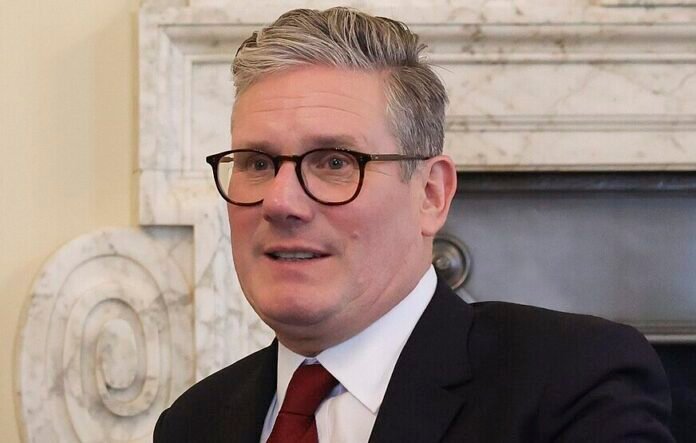Critics accuse PM Keir Starmer of betraying British sovereignty by surrendering the Chagos Islands and fear more such deals may follow
When Keir Starmer confirmed the UK would cede sovereignty of the Chagos Islands to Mauritius, many saw it not as a diplomatic compromise but as a humiliating capitulation. For critics, this was not just about a scattered archipelago in the Indian Ocean, but about national pride, constitutional principle, and Britain’s standing in the world.
The deal struck by Starmer’s government sees Britain relinquish legal control over the territory it has held since 1814. In return, the UK will lease back the Diego Garcia military base—a strategic hub operated jointly with the United States—for £101 million a year, payable to Mauritius for the next 99 years.
Embed from Getty ImagesTo constitutional expert Yuan Yi Zhu, the arrangement is indefensible. He argues it lacks legal precedent and reflects a broader incoherence in the government’s foreign policy. “Britain is not only giving away its land,” one commentator quipped, “but paying rent to the new owners.”
The Chagos deal has sparked sharp division. On one side are those enraged by what they see as a betrayal of British sovereignty. They argue the islands are legally British, culturally uninhabited by Mauritians, and of vital strategic importance. On the other, progressive voices dismiss the backlash as manufactured outrage from nationalists—suggesting that if no one had talked about the Chagos Islands in decades, why start caring now?
For critics, that dismissal is both disingenuous and revealing. “If you think surrendering British territory is a nothingburger,” one conservative columnist wrote, “perhaps ask yourself what would actually make you uncomfortable.”
This isn’t the first time sovereignty has clashed with sentiment. Britain’s colonial legacy is under sustained pressure from legal campaigns, UN resolutions, and shifting global alliances. Yet rarely has a British prime minister moved so quickly from legal defence to outright concession—especially one involving an active military installation.
Diego Garcia hosts one of the most important US military facilities outside America. Its remote location allows for a wide strategic reach across the Middle East, Asia, and Africa. Though the US has been assured of continued access, critics argue that relying on a lease agreement with a third country, rather than full UK sovereignty, creates unnecessary vulnerability.
More than that, the symbolic implications are potent. The Chagos retreat raises fears that Starmer’s government may pursue similar “decolonisation” settlements elsewhere—from Gibraltar to the Falklands—if pressured by global opinion or incentivised by trade and diplomatic deals.
“What happens when Buenos Aires demands talks over the Falklands?” asked one Conservative MP. “Will we rent back Stanley from Argentina next?”
While that may sound alarmist, the precedent is troubling to those who view sovereignty as indivisible. The decision also raises the question: what does Britain get in return? Beyond the right to pay Mauritius for use of a base it already controlled, the benefits are unclear. The UN may smile, and Mauritius may celebrate, but Britain is left poorer in territory and self-respect.
Of course, there is no going back. Parliament will not overturn the agreement, and the opposition is unlikely to challenge it. But as questions grow about Britain’s global role and leadership resolve, this moment may echo loudly. Not for what was done, but for what it might invite.
